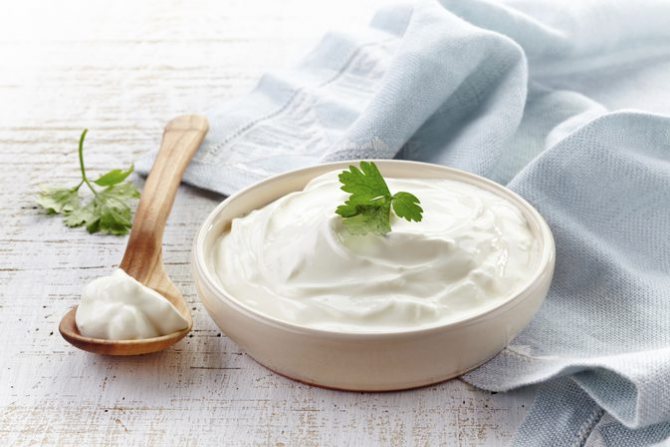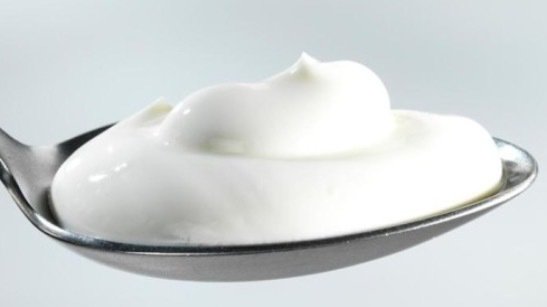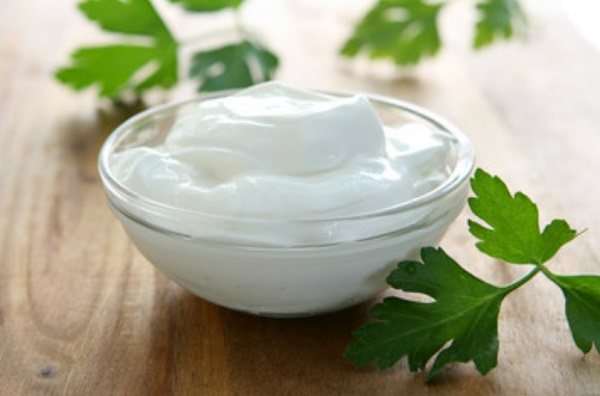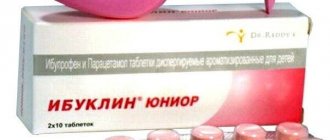At what age can a child be given sour cream? This is a question many young mothers ask. So, experts do not recommend giving sour cream to the youngest children. Moreover, even a one-year-old child should not be fed sour cream; it is better to replace this product with low-fat yogurt. It will be much more useful. After all, sour cream contains a significant amount of fat, which can cause stomach upset and even allergies in the baby. Therefore, pediatricians advise starting to feed your child sour cream no earlier than two years of age. You will learn more about all this from this article.
A little about the main thing
At what age can a child be given sour cream? The answer to this question interests many parents. After all, not all adults know about the specific age at which a child can be fed such a dairy product.
Pediatricians recommend starting to give sour cream to children no earlier than two years of age. Moreover, this fermented milk product should not be very fatty (no more than 10%). After all, the child’s pancreas at this age is not yet fully formed. Therefore, it is not worth loading it too much.
In addition, it must be said here that children prone to allergies should not be given sour cream before the age of three. Until this age, you should replace this fermented milk product with low-fat yogurt. This needs to be remembered.
The benefits of sour cream

Almost all adults like to add this fermented milk product to first and second courses. Moreover, many housewives use sour cream to prepare tasty and rich dough. But what is the benefit of this fermented milk product and is there any? The answer to this question interests many parents who are trying to teach their little children to eat sour cream.
The benefits of this fermented milk product are directly related to its composition. Sour cream contains:
- proteins that are very well digestible, as well as valuable amino acids necessary for the growth and development of the child’s body;
- calcium, magnesium, phosphorus, copper, iodine, zinc, selenium, sodium - all these microelements help strengthen the baby’s bones, normal functioning of the heart and nervous system;
- carbohydrates, they are so necessary for energy production in the child’s body;
- fatty acids are responsible for the absorption of fat-soluble vitamins and improve the child’s appetite;
- There are a lot of B vitamins, which are responsible for the formation of the baby’s immunity, as well as for the health of nails, hair and skin.
Moreover, this fermented milk product gives dishes a simply amazing taste. So its benefits are undeniable not only for adults, but also for children.
What are the benefits of sour cream
The beneficial properties of the original Russian product are associated with the composition of sour cream:
- easily digestible proteins and valuable amino acids are necessary for the child’s body as building material for new cells;
- sour cream is a storehouse of microelements necessary for the body (copper, calcium, zinc, iodine, sodium, iron, sulfur, phosphorus, selenium, molybdenum, etc.): phosphorus and calcium are used to form bone tissue, potassium will ensure normal cardiac activity, magnesium will strengthen the nervous system system;
- fatty acids promote the absorption of fat-soluble vitamins, increase the synthesis of digestive enzymes, and improve appetite;
- saturated fats in the form of conjugated linoleic acids in sour cream reduce the risk of heart disease, increase the body's protective abilities, and prevent obesity;
- carbohydrates serve to provide the child’s body with energy;
- sour cream contains many vitamins (B1, B2, B6, B12, E, H, D, choline, folic acid) involved in metabolic processes, the formation of immunity, ensuring healthy hair, skin, and nails;
- choline normalizes lipid metabolism and central nervous system function;
- lecithin promotes the development of intelligence and improves memory;
- The lactose contained in sour cream is necessary for the life of lactobacilli (beneficial intestinal microflora), this prevents the development of dysbacteriosis;
- consuming sour cream stimulates bowel movements, thereby preventing the development of fermentation and putrefactive processes in the intestines;
- During the fermentation process, the structure of milk proteins changes, which contributes to their complete absorption and rapid restoration of strength in case of fatigue.
Sour cream gives dishes a special taste, which can improve a child’s appetite.
When and what kind of sour cream should I give to babies?

Parents need to be very careful with the nutrition of their children. Therefore, it is not recommended to give sour cream to children under one year of age. This can cause not only allergies, but also serious problems with the gastrointestinal tract. After all, this fermented milk product is quite fatty.
Nevertheless, here I would once again like to answer the question of many caring mothers and fathers about at what age can a child be given sour cream. In the absence of allergies and any digestive problems, you can begin to introduce this fermented milk product into your diet from the age of two. But with extreme caution. In this case, sour cream should be taken with a fat content of no more than 10%.
Children from 2.5 years to three and a half years can be given the specified fermented milk product with a fat content of 15%. From the age of four, children are allowed to give even 25% sour cream. This fermented milk product with even higher fat content is not recommended for children. All parents need to take this into account.
Important

When answering the question about at what age can a child be given sour cream, it must be said that this can be done from the age of two. Moreover, this product should only be dietary (fat content no more than 10%).
Delicious, yellow sour cream with a creamy taste and a fat content of 48 percent is allowed to be consumed only by teenagers who are not prone to obesity. But they should only eat this product in small quantities due to its high fat content.
Do not forget that if sour cream contains a lot of fat, it contains little protein.
How to choose sour cream for a child
Pediatricians do not recommend buying sour cream on the market: firstly, it is too fatty, and secondly, it is not known whether sanitary standards were observed during its production.
The choice of sour cream for a child should be based on 2 requirements:
When purchasing in a store, you should carefully read the expiration date and composition: the baby food product must be natural and not contain stabilizers, preservatives, vegetable fats or other additives.
Sour cream should have a short shelf life - no more than 3-7 days. This will confirm the naturalness of the product. If the quality guarantee period is longer, it means that the composition contains preservatives.
Natural sour cream contains only 2 components - cream and sourdough. The presence of normalized cream in the composition indicates that the cream was diluted with skim milk to the required fat content.
The abbreviation “GOST” on the label confirms the naturalness and quality of the product, while the “TU” marking gives manufacturers the right, depending on technical conditions, to introduce additives without adhering to the standard.
The thickness of sour cream has long ceased to be a guarantee of its quality, since manufacturers can use thickeners and stabilizers, replace milk fat with vegetable fat, and milk proteins with soy proteins.
You should also pay attention to the integrity of the packaging. After opening the jar, you need to conduct a visual assessment of the product.
Is there any harm possible?

It has already been written earlier that sour cream is simply a unique product in its composition, because it contains all the vitamins and microelements necessary for a growing body. But can its use negatively affect the child’s health? This is indeed a very interesting question.
Due to the fact that the digestive system of a child who is not yet two years old is not sufficiently formed, it is not recommended to give him sour cream at this age. Because this will lead to bloating, pain and even diarrhea. For this reason, the baby’s parents will have to refrain from introducing this fermented milk product into their child’s diet until a certain age.
In addition, consuming sour cream will not be beneficial for a child in the following cases:
- if you are allergic to lactose, then you do not need to give this product;
- sour cream purchased from a retail chain may contain substances harmful to the child’s body;
- if you give your baby this fermented milk product in large quantities, it can lead to obesity;
- in a situation where sour cream has already expired, there is no need to add it to the child’s food, this can lead to food poisoning and very serious consequences.
All parents need to remember these simple rules.
Is there any harm from sour cream?

Eating sour cream may have an adverse effect on a child in the following cases:
- if the baby is intolerant to lactose (milk sugar), an allergic reaction may occur;
- when introduced into the diet of a child under 2 years of age: digestion of sour cream will be difficult due to the presence of saturated fats in its composition and imperfect enzymatic capabilities of the digestive tract, which will cause diarrhea and colic;
- A child’s consumption of high-fat sour cream can lead to metabolic disorders, disruption of the endocrine glands, and pathology of the liver and gall bladder;
- an excess amount of sour cream in a child’s diet can lead to paratrophy (excess weight);
- Store-bought sour cream may contain preservatives, thickeners, etc. that are harmful to the child’s body;
- A child's consumption of expired sour cream is fraught with the occurrence of foodborne toxic infection, the manifestations of which will be nausea, vomiting, abdominal pain, and diarrhea.
FAQ

The age at which sour cream can be given to a child starts at two years old. It is then that parents can give their baby this product to try. But this must be done with extreme caution.
When can you give your child sour cream if he is allergic to certain foods? The answer to this question is very ambiguous. Firstly, if the baby is allergic to certain foods, then parents should consult a pediatrician before introducing sour cream into the diet. This needs to be remembered.
Until the age of three, experts generally do not recommend giving sour cream to children who have allergies. In such a situation, you need to limit yourself to low-fat yogurt.
As they grow older, teenagers who previously had allergies can consume a small amount of low-fat sour cream, adding it to the first and second courses. But even in this case, it is better to consult a specialist.
When can you give your child sour cream and what to do if the baby does not want to taste this fermented milk product? This is a question many young mothers and fathers ask. So, there is no need to feed a child with sour cream until he is two years old; it is contraindicated. As your baby gets older, you can try adding it to soup, main course, or fruit salad. If the child does not like the taste of this product, then he should not be force-fed. It is possible that in the future the baby himself will show interest in sour cream and want to taste it. This must be taken into account.
What are the benefits of sour cream for children?
It has a beneficial effect on the growing body due to its composition enriched with:
- proteins that are easily digested by the child’s delicate digestive system;
- organic and fatty acids. Promotes regular bowel movements, preventing fermentation and rotting of incompletely digested food;
- "good" carbohydrates. Supply large amounts of phytonutrients and fiber;
- lactose (natural). Promotes the development of beneficial lactobacilli in the intestines and the absorption of calcium;
- molybdenum Controls metabolic processes;
- iodine Provides protection against pathogenic microflora, destroys unstable bacteria of viral origin;
- zinc Promotes cell renewal;
- selenium Strengthens the immune system, improves thyroid function;
- iron. Promotes saturation of cells with oxygen;
- copper. Plays an important role in metabolism and tissue respiration;
- chlorine, potassium, sodium. Take part in acid-base and electrolyte metabolism;
- gray. Maintains the necessary degree of blood clotting, strengthens the immune system;
- phosphorus. It is not a substitute for the normal formation of teeth, skeletal and muscular systems. Has a beneficial effect on mental development;
- magnesium Takes part in enzymatic processes, regulates the level of glucose in the blood plasma and the degree of bone density, improves the functioning of the respiratory system, blood vessels and heart muscle;
- calcium Ensures normal development of bones, muscle tissue and teeth, prevents blood thickening, which leads to the formation of blood clots;
- cyanocobalamin. Normalizes hematopoiesis, protects nerve cells;
- pyridoxine. Regulates the metabolic processes of amino acids, which act as the basis for the formation of proteins;
- niacin. Ensures the normal course of redox processes, has a beneficial effect on the condition of the skin, and protects against stress;
- folic acid. Participates in the synthesis of nucleic acids, the formation of cells of the nervous system;
- riboflavin. Takes part in biochemical processes and the synthesis of other useful microelements in the child’s body;
- thiamine – the most important component of electrolyte, lipid and protein metabolism;
- choline. Protects cell membranes, has a beneficial effect on the central nervous system, reduces the level of “bad” cholesterol in the blood;
- biotin, which is the main participant in carbohydrate metabolism and, by reacting with insulin, helps in the processing of glucose;
- phylloquinone. Ensures the normal functioning of almost all systems and internal organs, regulates the degree of blood clotting;
- tocopherol. Strengthens the immune system, improves the function of the sebaceous glands, prevents moisture loss from the skin, which has a great effect on its condition;
- vitamin D. It is not a substitute for the normal absorption of phosphorus and calcium, as well as the mineralization of teeth and bones. Normalizes the functioning of the central nervous system.
Some of these substances have large quantitative indicators per 100 grams of product, while others amount to hundredths. So, for example, calcium – 100 mg, and iodine – 7 mcg, and even less zinc – 0.24 mcg.

How to choose a product?
Is it possible to give sour cream to a child? The answer in this case will be positive. Nevertheless, parents need to be very careful when choosing this fermented milk product.
You should only choose sour cream for your child in the store, not in the market. Moreover, you need to pay special attention to the composition of the product and its shelf life.
It should also be noted that real sour cream contains only sourdough and cream. All other thickeners and other additives will indicate that the fermented milk product is not natural. The longer sour cream can be stored, the less useful it is. This rule must be remembered.
How to choose and store sour cream
A rustic homemade product has always been considered healthier than a store-bought one, because it is made from natural cream without additives or thickeners. But such sour cream must undergo mandatory sanitary inspection, as it can be contaminated with harmful bacteria. It is safer to buy it from familiar manufacturers, rather than on the market. Industrial is suitable for children's diets if there are no foreign components in the composition: nothing except cream and sourdough.
High-quality sour cream is always white, homogeneous, creamy consistency, without flakes and grains, with a slight sour-milk aroma. GOST must be indicated on the packaging. 10–15 percent cannot be thick by definition. If it contains “a spoon”, it contains starch and stabilizers.
Opened product packaging is stored in the dark, in the cold, for no more than 7 days. It is advisable to transfer it from plastic to a glass container with a tight lid.
Helpful information
Some parents, trying to diversify their baby’s diet, often turn to pediatricians with the question of how many months can a child be given sour cream and whether such a product is allowed to be introduced into complementary foods. In fact, everything is very simple here. Children can start giving sour cream only from the age of two. Therefore, there is no question of parents feeding a child who is several months old with such a fermented milk product.
Is it possible to give sour cream to a one-year-old child? According to existing special standards, feeding a baby with sour cream at this age is unacceptable. Because apart from pain and bloating, the child will receive nothing. The benefits of sour cream are out of the question here. This product should be given to a child no earlier than two years of age. All parents must know this.
Criterias of choice

When you decide to introduce your baby to sour cream, follow certain rules when choosing this product.
- The ideal option is homemade sour cream, of which you are confident. It is not recommended to take it from the market, as it may be excessively greasy, and there is also a possibility of non-compliance with sanitary standards.
- When buying sour cream in a store, you should pay attention to its composition, which should contain only natural ingredients, no stabilizers, preservatives or vegetable fats. Good sour cream should contain only sourdough and cream.
- When choosing sour cream for toddlers, you should give preference only to those that can be stored for no more than seven days.
- Pay attention to the inscription on the packaging. If “GOST” is indicated, then the product is natural and of high quality, if “TU” - manufacturers can add additives by changing the specified composition.
- It is important that the sour cream you give to your child does not have lumps, separated liquid, unpleasant odor or mold islands. If any liquid is found in sour cream, this indicates improper storage and the product is lost. If there is graininess or lumps, it means that the technological process was disrupted, for example, dry cream was used.
- It is unacceptable to buy your child a product called “sour cream”, “sour cream product”, “sour cream”. These names may indicate unnaturalness.
- It is unacceptable to give a child a product that has expired or from a package whose integrity has been damaged.
We recommend reading: Chronic urticaria, idiopathic, recurrent, papular: photos, causes and symptoms, as well as treatment of skin inflammation
Now you know at what age you can introduce a fermented milk product such as sour cream into a child’s diet. Remember the value it has. Do not forget that if you abuse sour cream, negative manifestations may occur that are harmful to the child’s body.
Dear readers, in this article we will answer the question, can children have sour cream? You will find out what age is optimal for introducing this product into a child’s diet, find out the specifics of its introduction. Let's talk about the benefits of sour cream and its possible harm. You will learn how to choose the right product for your baby.











